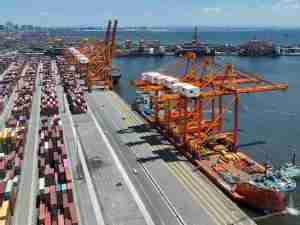Some traders and growers complain that bulk grains firms, such as Canada's Viterra and locally listed GrainCorp , wield too much control over the allocation of export facilities.
Wheat growers want storage levels at shipping terminals publicised so they can send their grain to ports with low stocks and avoid the expense of storage costs prior to loading.
But bulk grain handlers point to significant investment, saying details of storage and shipping are proprietary information. The Australian Bureau of Statistics provides some limited information on bulk grain storage each month.
The recommendations of the Senate Committee on Rural and Regional Affairs and Transport follow a year spent examining the Australian grain export market, which was deregulated in 2008.
The panel wanted the details of publication incorporated in a voluntary code of conduct that will govern the Australian grain market from September 2014, but feared the code would not be enough to get bulk grain handlers to comply with port terminal access pacts unless accompanied by a threat such as loss of export accreditation.
"The committee is concerned that without a deterrent such as the possible relinquishment of a bulk handling company's export accreditation, there is no incentive for the company to adhere to the voluntary code of conduct," the Senate report said.
The committee did not recommend the introduction of auctions for shipping slots at all Australian ports, saying the system might not solve some port access woes.
Shipping slot auctions are held in Western Australia, the top wheat growing state, and Viterra is working with the country's competition regulator towards a similar system in South Australia, where it has a grain export terminal monopoly.
The Senate panel said the need to extend auction sites should be weighed by industry body Wheat Export Australia, and called for investment in transport infrastructure in Australia, particularly rail, urging the federal government to find funding options if state governments and private operators fell short. (Reuters)









